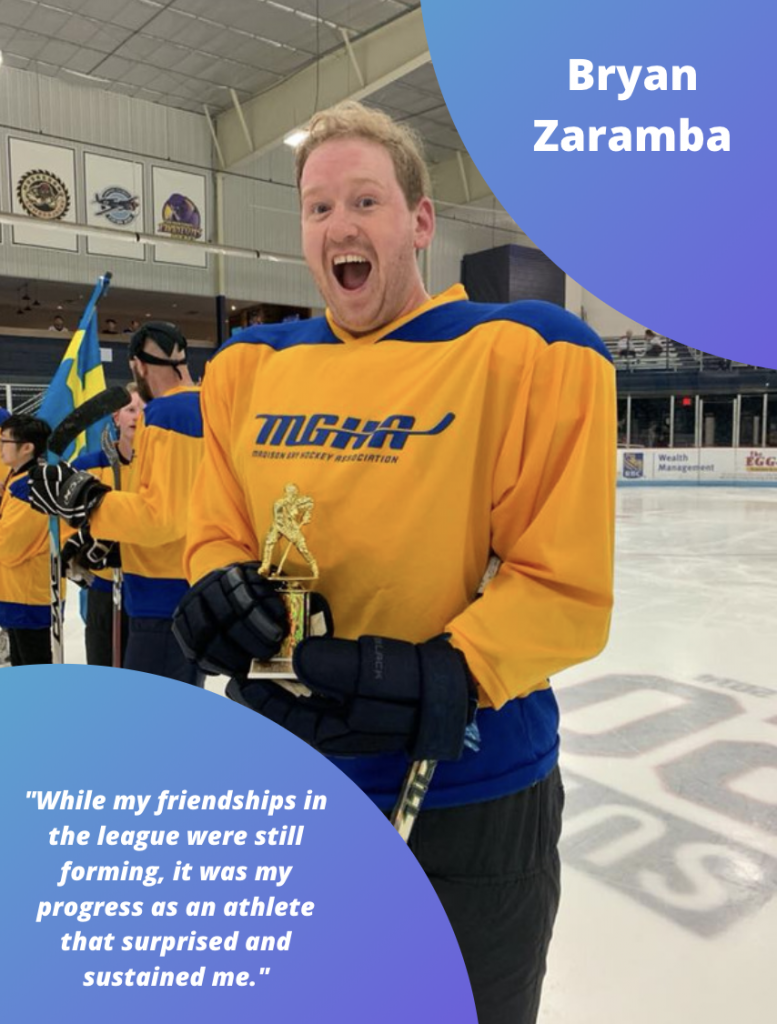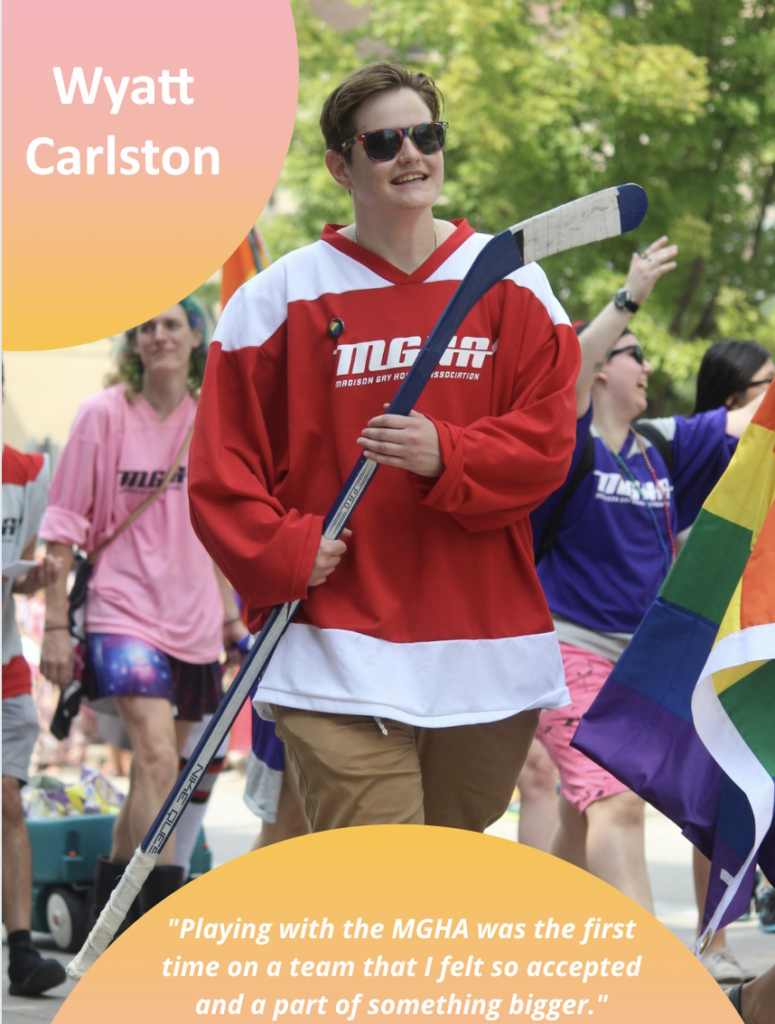Every year, the MGHA asks our community to reflect on their experience and prompts everyone to write an essay on “What gay hockey means to me”. This year we had 9 people respond and as always, these essays reflect the beauty and diversity of meaningful experiences.
Check out these essay previews and click the links below each picture to read the full essay.
Thanks to everyone who participated this year – you mean the world to us!

Avery’s 2019-2020 essay won this year and will be featured in Our Lives Magazine.








